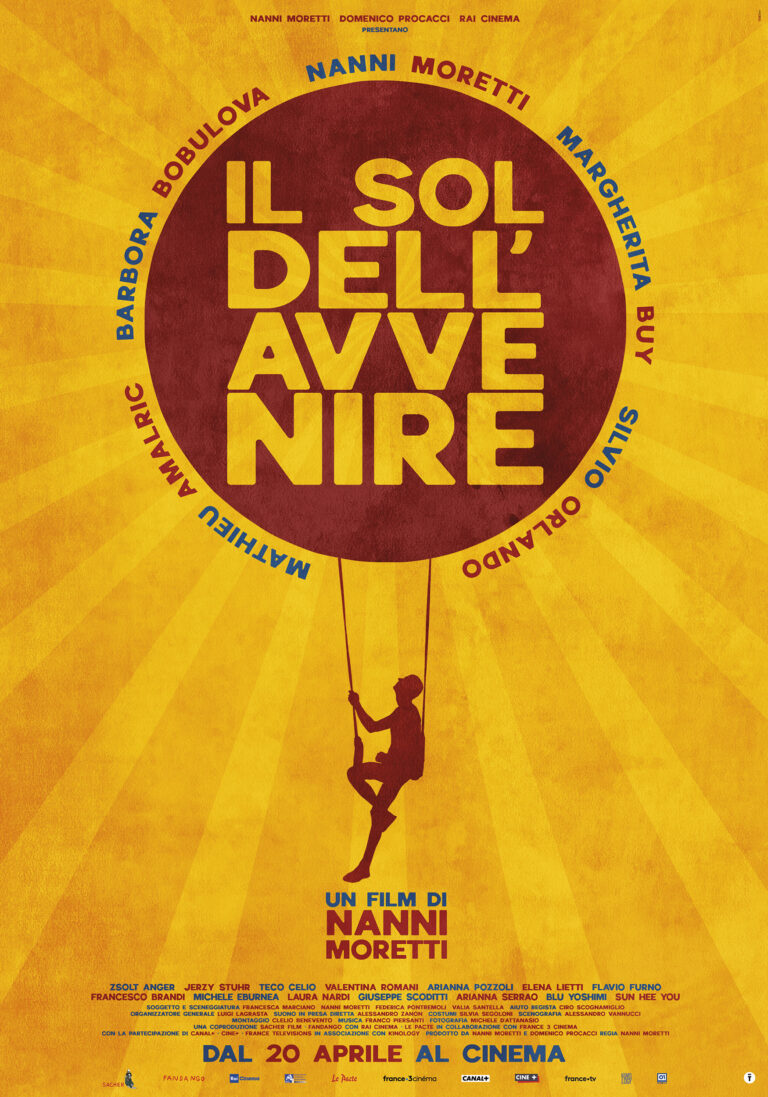
Michelangelo Antonioni’s Red Desert (1964), his first color film, is an evocative and haunting meditation on alienation in the modern world. Widely regarded as one of his greatest achievements, it stands as a definitive cinematic exploration of the spiritual desolation brought about by industrialization and technological progress. The film features a masterful performance by Monica Vitti, who plays Giuliana, a disaffected woman who drifts through a bleak, toxic industrial landscape, struggling to connect with her surroundings, her family, and even her own psyche.
In this stark portrayal of modern life’s emptiness, Antonioni’s vision is expressed through painterly, carefully composed visuals that leave a lasting impression. Each frame of Red Desert functions as a metaphor, from the desolate landscapes filled with towering electrical pylons and dilapidated fishing cottages, to the polluted waters and towering factories that dominate the environment. Antonioni’s use of color is particularly striking, with the unnaturally vivid tones of the landscape amplifying the sense of alienation felt by Giuliana.
The plot centers around Giuliana, a woman whose mental fragility is exacerbated by the industrial world she inhabits. Set in the small town of Ravenna, Italy, the film begins with Giuliana walking with her son, Valerio, towards her husband’s petrochemical plant. Surrounded by workers on strike and the jarring sights and sounds of industrial machinery, Giuliana purchases a half-eaten sandwich from one of the strikers, highlighting her disconnection from both society and herself. Her husband, Ugo (played by Carlo Chionetti), works at the factory, but he is distant, concerned more with his business deals than his wife’s emotional state.
Ugo’s colleague, Corrado Zeller (Richard Harris), a businessman from abroad, takes an interest in Giuliana, and the two begin a tentative, emotionally charged relationship. Giuliana’s fragility is apparent in their conversations, where she reveals her vulnerability and her growing sense of hopelessness. In one poignant scene, Giuliana recounts a hospital encounter with a woman who was advised to find something or someone to love, in order to stave off the existential dread that had consumed her. This dialogue encapsulates the central theme of the film: the search for meaning in an indifferent, toxic world.
Critics have lauded Antonioni for his bold approach to storytelling, which focuses less on traditional narrative and more on the psychological landscape of his characters. As the film progresses, Giuliana’s descent into emotional turmoil deepens. She is haunted by a series of fragmented interactions with those around her, including an unsettling encounter with a foreign sailor, a symbol of her ultimate isolation.
Reviews highlight Antonioni’s exceptional ability to capture the inner emotional landscape through his meticulous direction. Red Desert was praised for its use of color and sound to create an atmosphere that is simultaneously beautiful and suffocating. The film’s bleak industrial settings are not just backdrops but active participants in the narrative, reflecting Giuliana’s inner crisis. Antonioni’s signature long takes and slow pacing allow the viewer to fully immerse in the disquieting world he creates.
The film’s depiction of the modern condition continues to resonate with contemporary audiences. A common interpretation of Red Desert is that it portrays the disintegration of human connection in a world increasingly dominated by technology and environmental decay. Giuliana’s emotional and psychological unraveling is a response to a world that seems to offer no answers or comfort. Even in her brief encounters with others, whether with her husband or with Corrado, Giuliana remains fundamentally alone, trapped in her own mind.
The film’s conclusion—Giuliana wandering in isolation, unable to connect even with her son or the people around her—underscores the ultimate futility of trying to find solace in a world that has lost its sense of humanity. Red Desert is not just a critique of industrialization but also a poignant exploration of the human psyche, depicting a woman whose despair mirrors the alienation of modern society.
Reviews:
Red Desert has been consistently praised for its thematic depth and visual brilliance. Critics have described it as a work that demands both intellectual and emotional engagement. Its haunting atmosphere is underscored by the performances, particularly Vitti’s portrayal of Giuliana, which some reviewers have called one of her finest. Her vulnerability, confusion, and quiet desperation evoke empathy from viewers, even as her experiences remain enigmatic and elusive. The chemistry between Vitti and Harris is equally compelling, with Harris’ character providing a stark contrast to Giuliana’s fragility.
Cinephiles and scholars alike have called Red Desert a masterpiece of modern cinema. Its unsettling imagery and nuanced portrayal of a woman’s mental and emotional disintegration have cemented it as a critical touchstone in Antonioni’s career. As one critic wrote, the film is “an exploration of how the external world shapes the internal—how a barren industrial landscape can mirror the fragmentation of the human soul.”
The film’s influence extends beyond the realm of art cinema. Red Desert has been cited as a precursor to later works in the science fiction genre, particularly those exploring dystopian themes and environmental collapse. Antonioni’s critique of modern life, steeped in industrial alienation and environmental degradation, feels increasingly prescient today.
In sum, Red Desert is a film that challenges its viewers to confront the profound loneliness and disconnection of the modern era. Through its haunting imagery, reflective performances, and sharp critique of industrial society, it remains one of Antonioni’s most powerful and enduring works.





